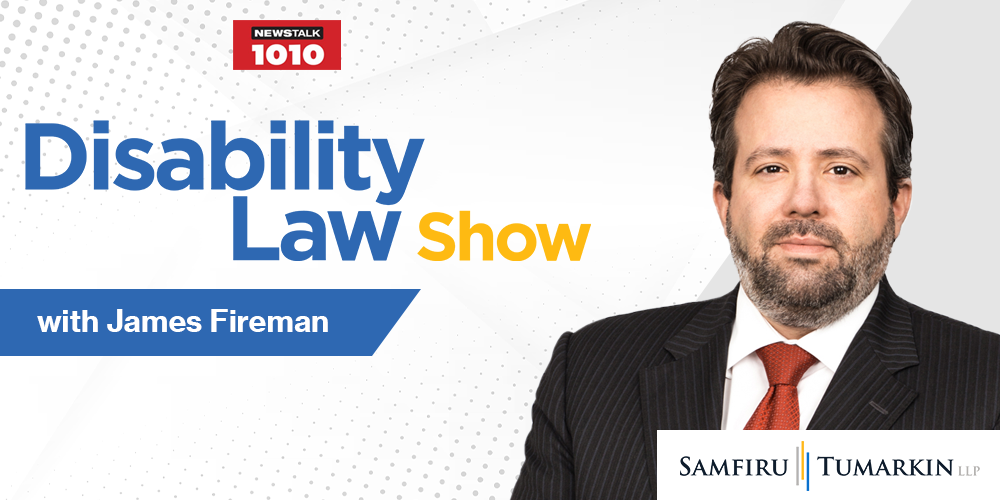Disability Law Show: Ontario – S5 E47

Episode Summary
Do claimants have to follow their insurer’s recommended treatment plan? Disability lawyer and Partner James Fireman, at Samfiru Tumarkin LLP, answers this question and more on the Disability Law Show on Newstalk 1010 in Toronto.
Listen below to discover important information about your rights and a guide through the proper steps to take when your insurance provider cuts off your long-term disability or denies your insurance claim.
When you need a disability lawyer in Ontario, James can get you the advice you need, and the compensation you deserve.
Listen to the Episode
Show Notes
- Time frames to apply for LTD: Claimants unsure of their rights and having an issue with their insurer should speak to a disability lawyer as soon as possible in order to maintain their benefits. After a claimant is denied benefits or cut off from benefits, they can pursue a legal claim for up to two years after the initial denial. Appealing generally wastes valuable time for claimants, as the appeals process is rarely successful.
- Threatened by insurer leads to relapse: Many claimants with an addiction and/or substance abuse condition can also experience other medical conditions, such as mental illnesses. Insurers will typically request claimants attend rehabilitation clinics they have a professional relationship with. Claimants should speak to their own treating doctors and professionals and have them review the insurer’s treatment plan.
- CPP Disability benefits and LTD: Disability insurers will often require claimants to apply for CPP Disability at the change in definition period. In the event a claimant receives CPPD approval, the insurer is entitled to offset benefits and make deductions. Claimants can receive up to one year of retroactive CPP Disability payments. Insurers are also entitled to offset the retroactive CPP Disability benefits.
- Claimant’s file referred for return-to-work plan: Claimants must speak to their treating doctors regarding a rehabilitation or return-to-work plan. A treating doctor can determine if a treatment plan is necessary or helpful. Ultimately, a claimant’s own treating medical team’s opinion should be prioritized. It is not in a claimant’s best interest to refuse a treatment plan without support from their doctors.




